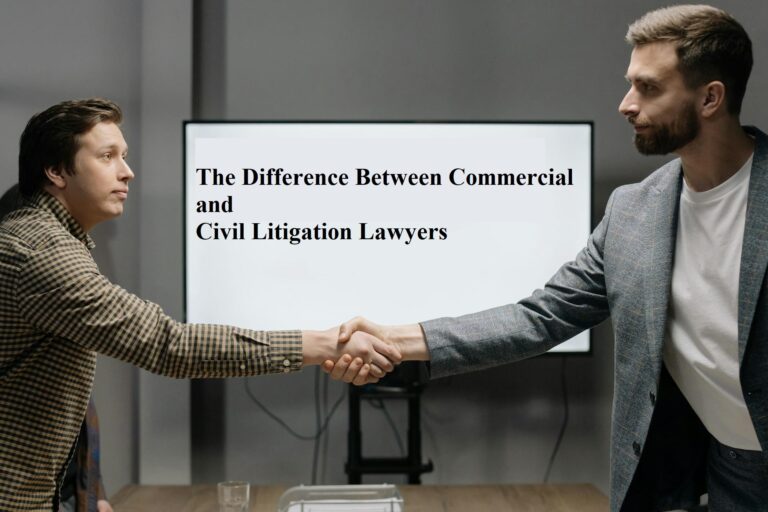5 Common Corporate Legal Disputes a Business Law Attorney Can Help With
In the intricate world of corporate law, several common legal disputes can arise, effectively putting the smooth operations of a business at risk. These disputes can range from disagreements over contracts and intellectual property rights to employment issues and the complex challenges faced during business dissolution. Furthermore, shareholder and partnership conflicts can often lead to disruptive disputes within the organization. A business law attorney can be instrumental in maneuvering these legal hurdles, ensuring the longevity and success of your business. The question is, how exactly can their expertise be applied in these areas?
Breach of Contract Cases
Frequently at the heart of corporate legal disputes, breach of contract cases pose significant challenges for businesses. These disputes often arise when one party fails to fulfill its obligations, as delineated within the contract’s terms. Such situations require a meticulous contract interpretation to clarify the responsibilities of all parties involved.
In the domain of commercial litigation, every word in a contract matters. Misinterpretation could potentially lead to substantial losses. Consequently, businesses seek the expertise of legal professionals specializing in contract law. These attorneys meticulously scrutinize every clause, ensuring a fair and precise interpretation that defends the rights and interests of their clients.
Moreover, in breach of contract cases, the calculation of damages plays a pivotal role. This process involves determining the financial impact caused by the breach, quantifying the loss suffered by the aggrieved party. A precise calculation is essential, as it directly affects the compensation a business may be entitled to.
Intellectual Property Disputes
Another notable area of corporate legal disputes revolves around intellectual property. This refers to creations of the mind, such as inventions, designs, names, and images used in commerce. The importance of protecting these assets cannot be overstated, as they often hold considerable value and contribute greatly to a company’s competitive edge. A key aspect of safeguarding these valuable assets involves protecting your business with intellectual property legal counsel, which can help navigate potential disputes and ensure your rights are well-defended.
Trademark infringement is a frequent cause of intellectual property disputes. This occurs when a business uses a logo, name, or other trademark that is identical or confusingly similar to another’s registered trademark without authorization. These disputes can cause severe financial and reputational damage, and therefore should be addressed promptly with the assistance of a proficient business law attorney.
Similarly, copyright violation, another common type of intellectual property dispute, involves the unauthorized use of copyrighted material, such as music, books, films, or software. These disputes can result in costly litigation and considerable penalties.
Employment Law Issues
Often at the heart of corporate legal disputes are issues pertaining to employment law. These disputes can take many forms, but frequently involve discrimination claims or allegations of wrongful termination.
Discrimination claims are complex and can seriously harm a company’s reputation if not handled correctly. These claims may involve accusations of biased treatment based on race, gender, age, or other protected classifications. A seasoned business law attorney can help develop strategies to prevent such incidents, and if accusations arise, they can assist in the creation of a robust defense strategy.
Wrongful termination allegations are another common facet of employment law disputes. These can occur when an employee believes they were let go for illegal reasons, such as retaliation or discrimination. If your business faces such claims, it is important to consider addressing employment law disputes such as wrongful termination. An experienced business law attorney can assist corporations in ensuring they are adhering to applicable employment laws when making termination decisions.

Business Dissolution Disputes
In the world of corporate law, business dissolution disputes represent a significant area of contention. This type of dispute often arises when a business is closing, and the involved parties disagree on the terms of dissolution. Two primary areas of disagreement are typically business valuation and asset division.
The process of business valuation involves evaluating the economic value of a company. Disputes can arise when different parties have conflicting views on the true worth of the business. An accurate valuation is essential as it affects the division of assets and the proceeds each party receives. A skilled business law attorney can provide vital guidance in this complex process, ensuring the valuation is fair and accurate.
Asset division is another common source of contention during business dissolution. It involves allocating the business’s assets, including physical property, intellectual property, and financial resources, among the owners. Disputes can occur due to differing opinions on the value of specific assets or how they should be distributed. A proficient attorney can help navigate these complex issues, advocating for a fair and equitable division of assets.
Engaging an experienced business law attorney can help minimize disputes and facilitate a smoother business dissolution process.
Shareholder and Partnership Conflicts
While business dissolution disputes can create significant challenges, they are not the only area of potential conflict in corporate law. Shareholder and Partnership Conflicts also present their unique complexities that require skilled negotiation and resolution.
Shareholder rights and partnership agreements form the cornerstone of these conflicts. Shareholders, as equity owners, have specific legal rights. However, disagreements can arise over these rights, such as voting rights, dividends, and information access. A business law attorney can provide vital counsel in these scenarios, protecting shareholders’ interests while pursuing fair and balanced resolutions.
Similarly, partnership agreements can be a source of contention. These agreements often dictate the responsibilities, profit distribution, and dissolution parameters for partners. Discrepancies or disagreements in interpreting these agreements can lead to legal disputes that can disrupt the business’s operations and impact its reputation.
A proficient business law attorney can help navigate these sensitive issues, offering advice and representation that guarantees the company’s best interests are upheld. They can help to mediate disputes, negotiate revisions to partnership agreements, and assert shareholder rights. This professional guidance can be instrumental in resolving conflicts and fostering a harmonious business environment.
Frequently Asked Questions
What Types of Business Formation Issues Can a Corporate Lawyer Assist With?
A corporate lawyer can assist with various business formation issues including drafting partnership agreements, ensuring liability protection, defining ownership structure, and securing necessary business licenses, effectively mitigating potential legal disputes.
How Can a Business Law Attorney Help With Commercial Real Estate Disputes?
A business law attorney can provide invaluable assistance with commercial real estate disputes, specializing in lease negotiations, property disputes, and more. They offer legal guidance to guarantee fair treatment and protect your business interests.
Can a Business Law Attorney Help With Tax Compliance and Disputes?
Yes, a business law attorney can provide essential assistance with tax compliance and disputes. Their expertise covers areas such as tax audits and tax litigation, helping businesses navigate complex tax laws and resolve any arising issues.
Can a Business Law Attorney Assist With Regulatory Compliance Issues?
Indeed, a business law attorney can provide invaluable assistance with regulatory compliance issues, offering services that include managing regulatory audits and implementing effective compliance training to guarantee full adherence to all relevant rules and regulations.
How Can a Business Law Attorney Help in Mitigating Financial Risks for a Company?
A business law attorney, an unerring compass in the sea of commercial hazards, guides a company through contract negotiation and risk assessment, essential in identifying, managing, and mitigating potential financial risks, safeguarding the firm’s interests.







